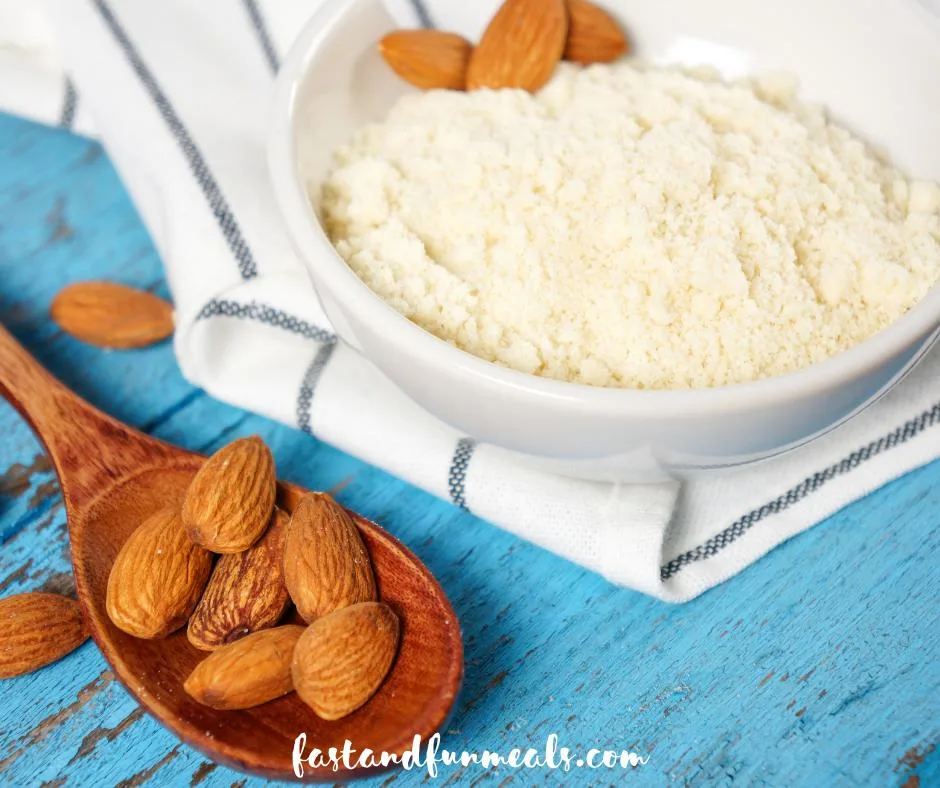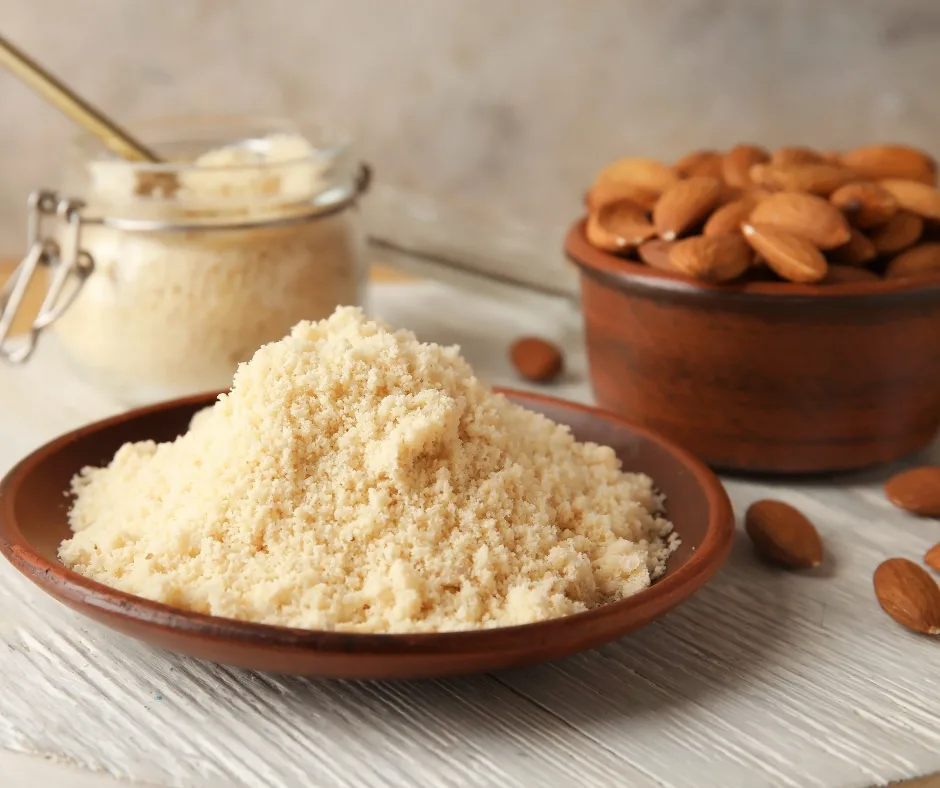What is the shelf life of almond flour? How long is almond flour good for after the expiration date? Does almond flour go bad?
If these questions are bugging you, this guide is here to help you discover everything you need to know about almond flour. From the shelf life to proper storing techniques, safe preparation tips, and more, you can find out all about this common ingredient below.
If you’re planning or starting to add almond flour to your diet and use this ingredient in your favorite recipes, read this guide first so you’ll be able to maximize its versatility for a longer time.
This post contains links for items to purchase. I make a commission on any sales.

Almond Flour Shelf Life:
Almond flour is one of the best ingredients you can have in your pantry. This ingredient is versatile, nutritious, and a lot easier to properly store than you think.
It’s not surprising that many prefer using almond flour instead of wheat flour. Almond flour is naturally gluten free, lower in carbs, has a sweeter taste, and is rich in nutrients and minerals such as Vitamin E, magnesium, fiber, and other healthy fats.
But of course, you have to know what is the shelf of almond flour first before using it. Being aware of almond flour’s shelf life is the best way to ensure that everything you whip up with this ingredient will come out perfectly; delicious, and safe to eat.
What is the shelf life of almond flour?
First things first, take note that almond flour has a good shelf life but it’s nothing compared to the shelf life of all purpose flour.
Almond flour is a famous alternative to other kinds of flour because of its health benefits that come from its healthy fat content. However, these oil and fats are also the reason almond flour can easily go rancid.
The shelf life of almond flour will depend on where and how you will store it. You can place it in the pantry, fridge, or freezer. Plus, even after the expiry date, you can still use and store this amazing ingredient if you follow these steps.

How long can you use almond flour after the expiration date? How long does almond flour last?
After the expiration or best before date, regardless if it’s opened or completely sealed, almond flour can last for 2 to 4 months in the pantry.
If placed in the fridge, unopened almond flour can last for up to 6 to 12 months, if opened that timeline is only 3 to 6 months. On the other hand, if stored in the freezer, unopened almond flour is good for up to 12 to 24 months, but if already opened, it can only last 6 to 12 months.
Past the expiry date or not, once your almond flour is opened, it’s highly recommended to store it in the fridge or freezer right away.
Kitchen tools that will come in handy in storing and preparing almond flour:
Almond flour is a versatile and healthy option to use for all kinds of recipes. Having the right set of kitchen tools and gadgets will allow you to make the most out of this amazing ingredient.
Aside from knowing the shelf life of almond flour, it’s also important to know the kitchen essentials that will help you properly store and prepare it. Double check your pantry if you’re already equipped with these items before you proceed to whip up your favorite dishes with almond flour.
As an Amazon Associate and member of other affiliate programs, I earn from qualifying purchases.
- Blue Diamond Almond Flour
- Flour Sifter and Pastry Set
- Brilliance Pantry Airtight Food Storage
- Stand Up Freezer Safe Storage Bag
- Stainless Steel Mixing Bowls

How to store almond flour after opening? Can you freeze almond flour?
Yes, you can freeze and refrigerate almond flour to prolong its shelf life. After all, it shouldn’t be exposed to direct heat and sunlight.
Once opened, transfer your almond flour right away into an airtight container and place it in dark and cold places like cabinets and cupboards. If you are planning to store it in the refrigerator or freezer and it does not come in a resealable bag, use stand up freezer safe storage bags instead.
Whichever container you use, make sure to always seal it tightly. This simple step will prevent any air and moisture from coming in that results in rancidity, clumps, and the growth of pests.

Can almond flour go bad? How do you know if almond flour has gone bad?
Like any other food, almond flour can also go bad. But of course, this will only happen if you were not able to consume it immediately and store it properly.
You’ll easily know if your almond flour has gone bad if it has an unpleasant smell or off aroma (rancidity), molds, pantry pests and insects, clumps, and discoloration. If you see any of these signs, it’s best to toss the flour away. It might not be dangerous to your health but it’s highly likely to make your recipe not as perfect as you expected it to be.
Although almond flour can have a long shelf life, it’s still best to consume it before the expiration date. As much as possible, buy only what you need so you’ll always have fresh almond flour for your recipe. After all, the freshness of ingredients also affects the taste and the outcome of your dish.

What almond flour recipes can I try?
After knowing what is the shelf life of almond flour and how to properly store this awesome ingredient, it’s time for you to discover new and creative recipes to try as well.
Luckily, we just have the perfect recipe collection for you! Our 25 Recipes With Almond Flour is filled with lots of quick and easy dishes, from breakfast to dinner and up to desserts. You’ll surely have fun trying out these recipes at home!

